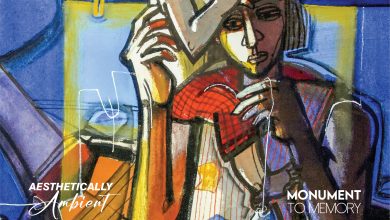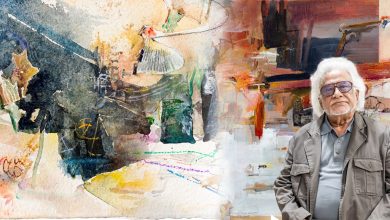For Bangladeshi expatriate artist Syed Iqbal, what matters in painting is the emotions it stimulates. He seeks to express only inner, essential feelings. The veteran’s artistic pursuit began at a very tender age. Despite his father’s objection to heading to art as a career to financial obstacles, Iqbal never let go of his artistic pursuit. To him, art runs in his gene – it propels him to be alive.
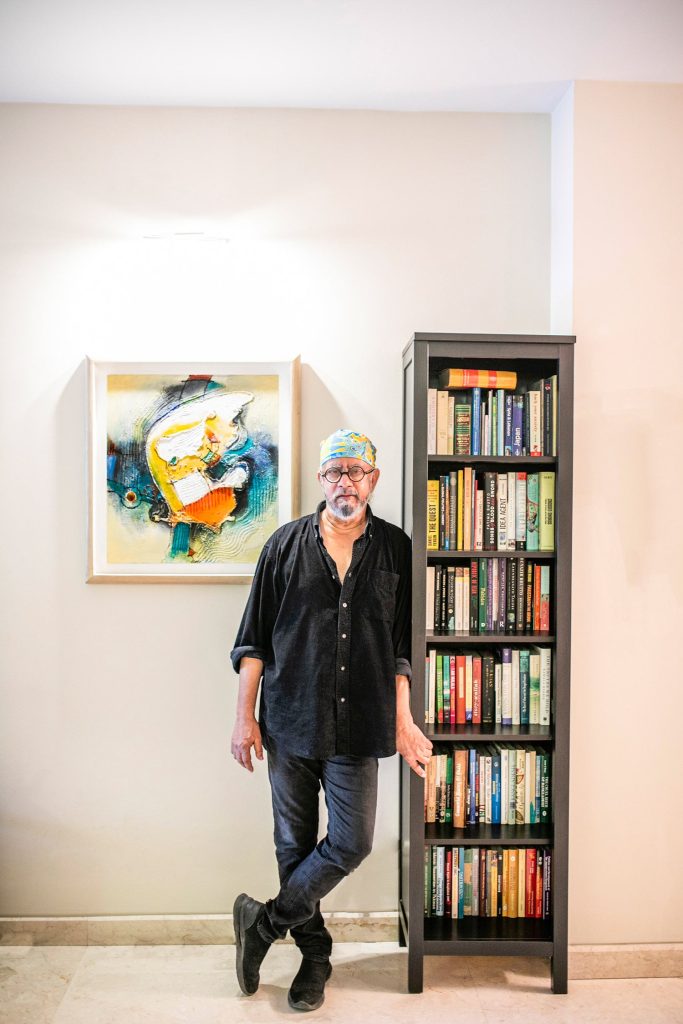
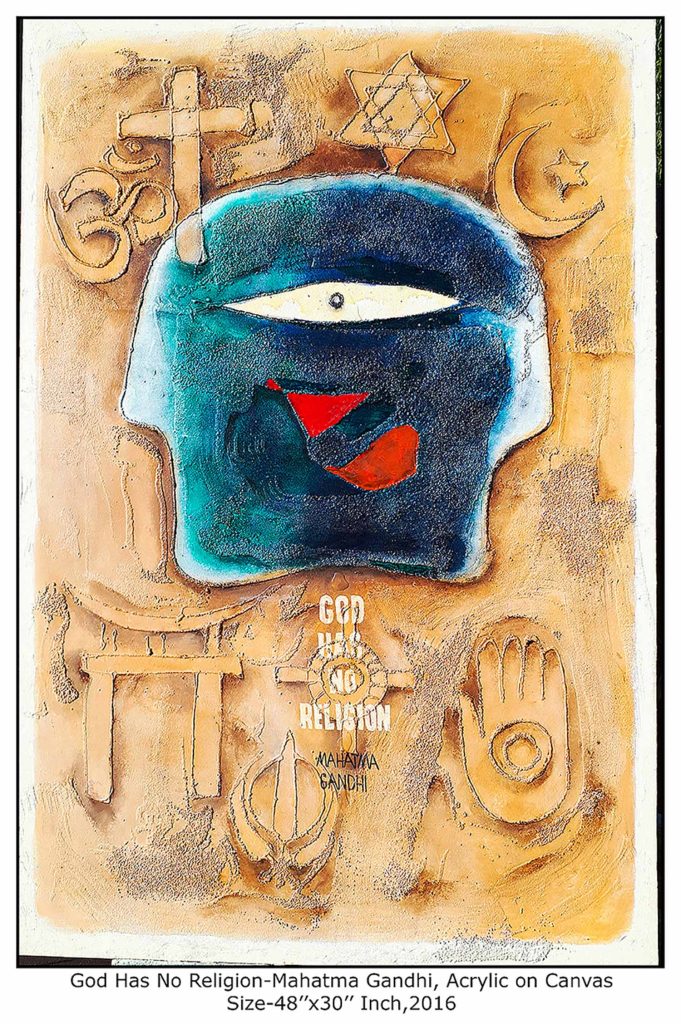
The artist was born in 1953 in the port city, Chittagong, where he spent his formative and growing years. He later lived and worked in Dhaka before moving to Montreal, Canada, in 1994, and a year later moved to Toronto, where he continues to reside.
Reminiscing his childhood days, the artist shared there were days when he used to bring back home the used paint tubes left by his peers and how earnestly he used to take out the little residue with the help of toothpicks.
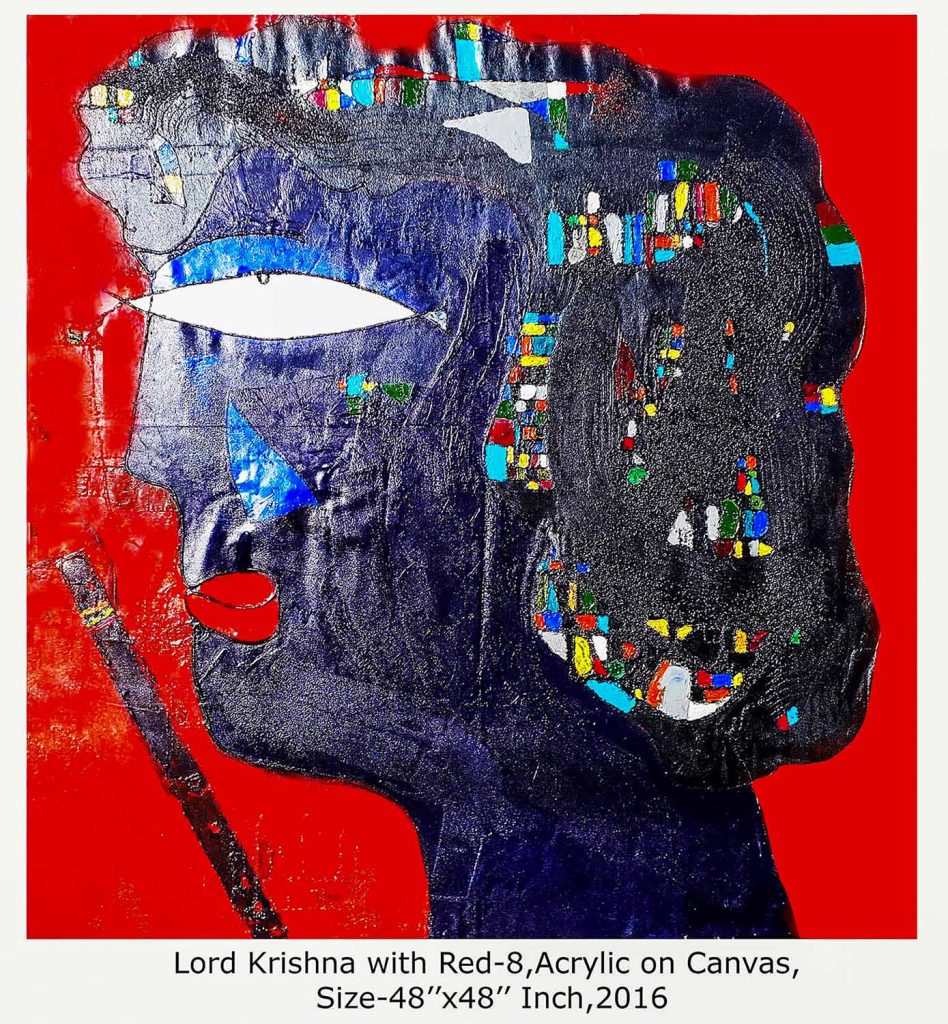
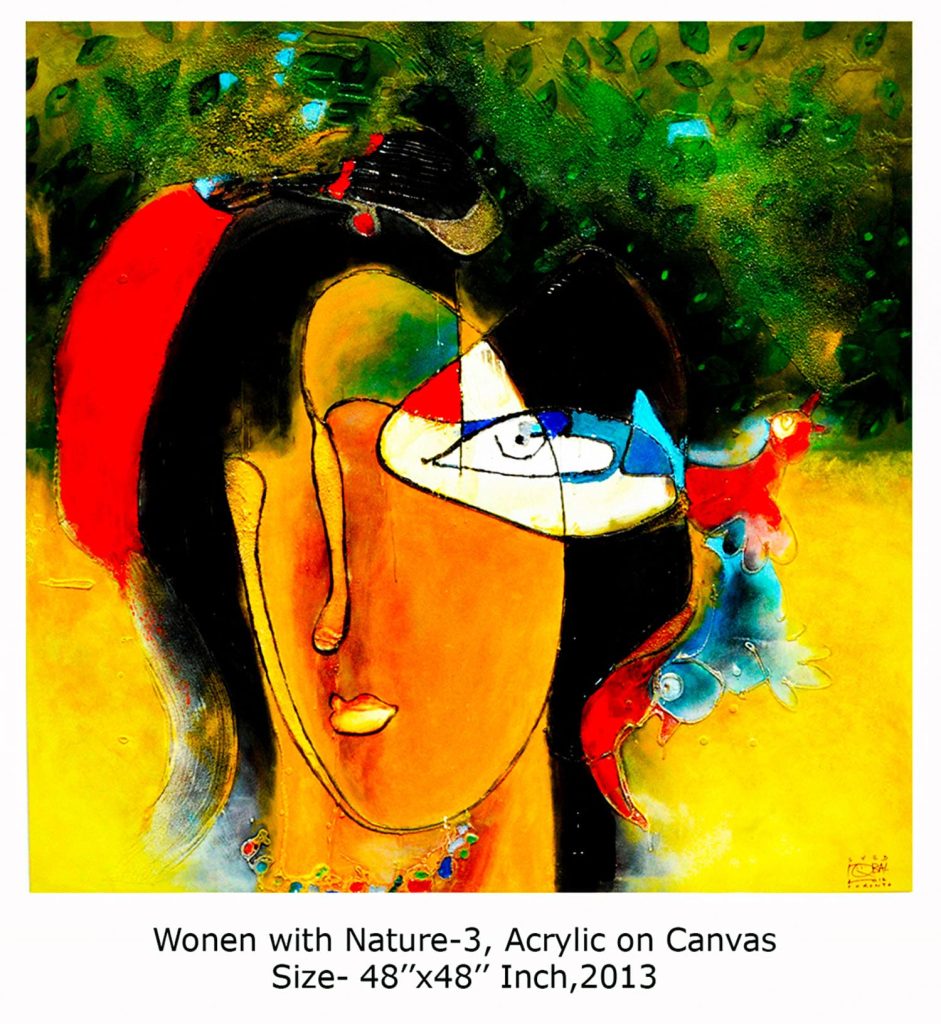
“I didn’t go to any art school, nor did I have any formal art training back then. I used to draw on my own. I enjoyed colours and form play. My father was not keen on the creative instincts inside me and often I had to endure his bash for the sake. But he must be elated now, I believe, noting me as an artist”, the veteran shares.
The artist started with realistic paintings but was inclined to abstract compositions at a very early stage of his career. His illustrations take cues from nature, human passion and their perplexed embodiments, rendered with the interplay between powerful hues of exquisite colour, imaginary form and thick texture.
. “At the initial times, when I was skeptical about my works, artist Monirul Islam’s inputs gave me a new perspective. He told me to don the character’s emotion and the illustration and translate it into abstract imagery. This is how I got developed to abstract style and technique”, recalls Iqbal.
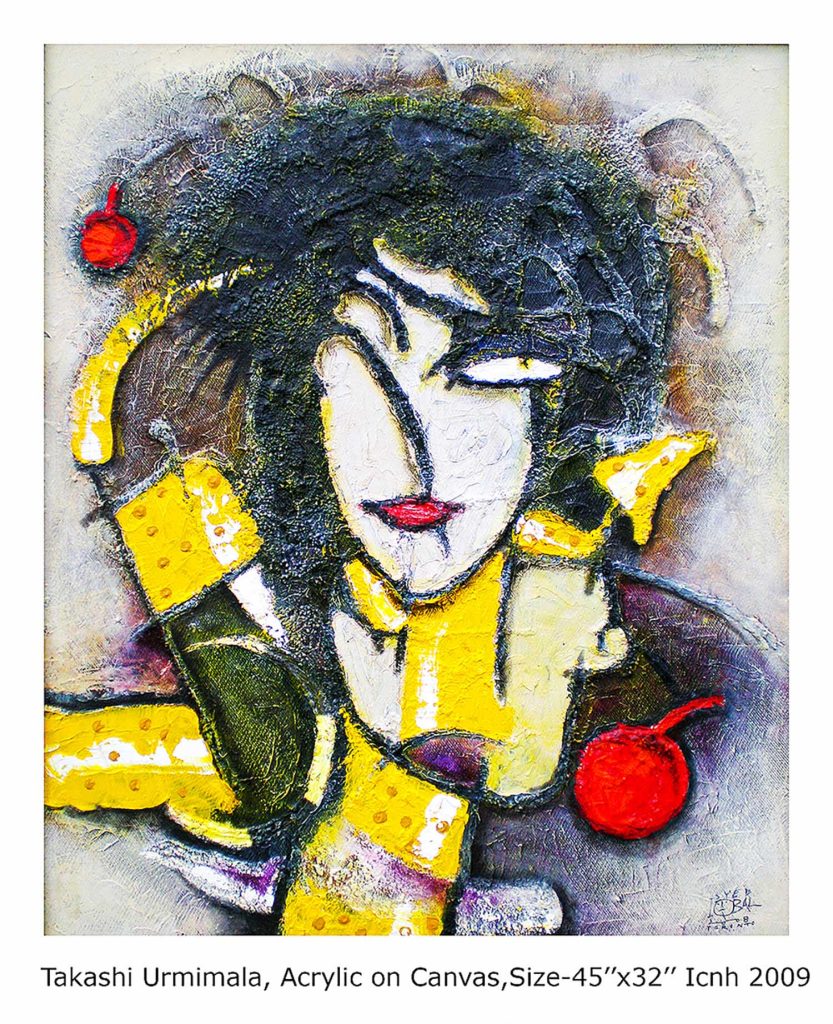
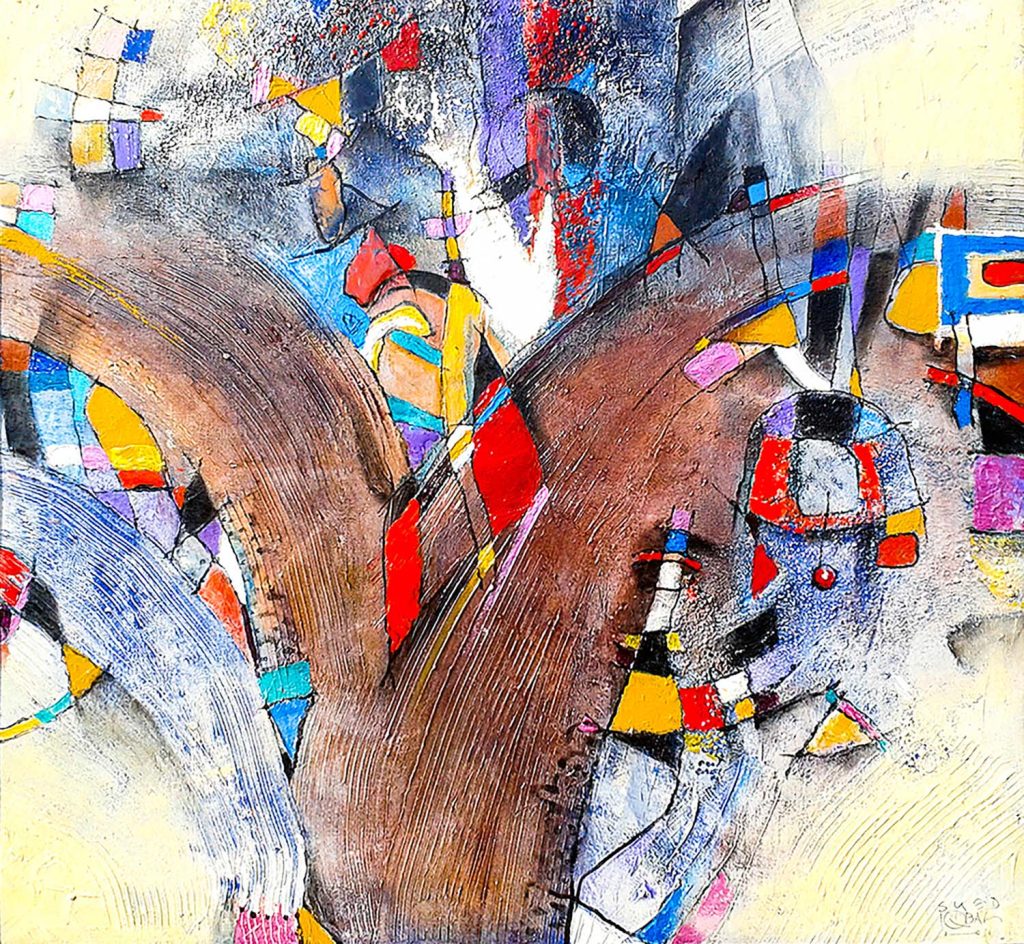
“It’s like you haven’t drawn a rose in real, but added a form and a red stroke, but you can sense its feel and lovely fragrance – that’s how I define a successful abstract art. I am also immensely inspired by Hashem Khan. I admire how bravely he composes his bright hues. Among my peers, I love the abstract works of Mohammad Eunus and Tajuddin Ahmed. And overall, one artist whose work and life, in general, I cherish is Vincent Van Gogh. I have seen all the films featured on him, read all the books written on him till now.”
The artist has been working on series, some of which are 15 to 20 years long, and still going in the process. The ‘Tears of Nature’ series arouse in protest of global warming and loss of biodiversity, and another series, ‘Mind the Gap,’ explicates the dangers of being too intimate in love. Hindu mythical characters like Lord Krishna, Lord Ganesh and others are recurrent subjects of his paintings, as we see in his ‘Gautama’ series. Added also to the collection are about half a dozen other works from his famous ‘Mindscape’ series that debuted first in Dhaka’s Bengal Gallery in 2001. The series is like his personal diary of life, which he tends to continue lifelong. The artist is currently working on a new series, ‘Father Give Me a Nation’, in which he delves into the country’s history from its pre-independence era to the ongoing. Surprisingly, the artist is also a popular writer, with 40 books to his credit, amalgamating novels, short stories and fiction.
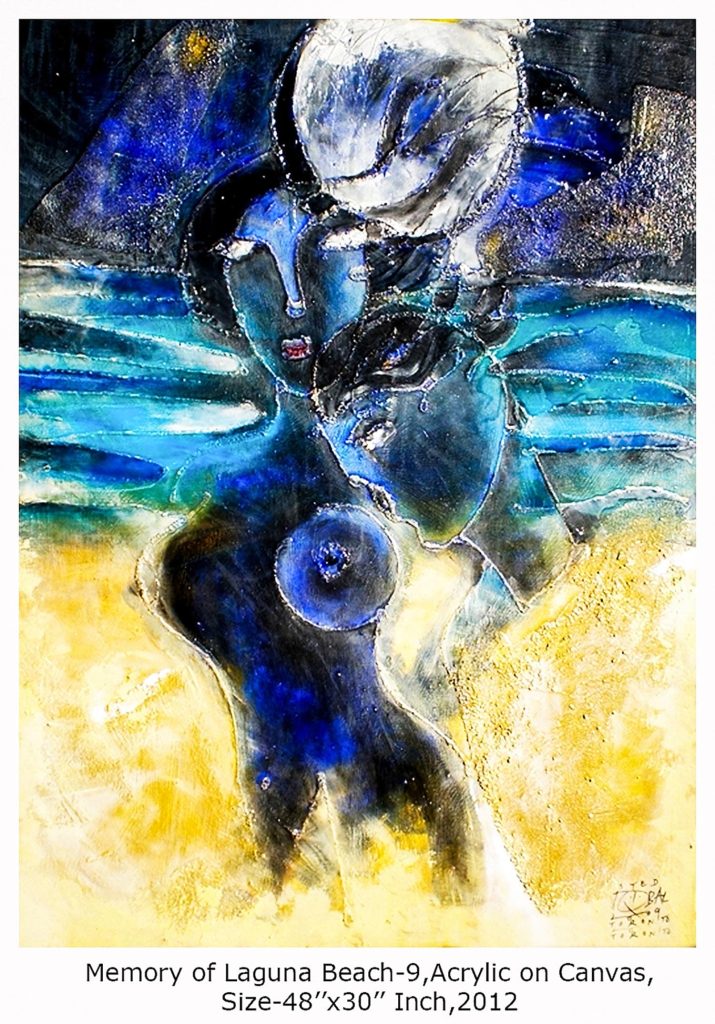
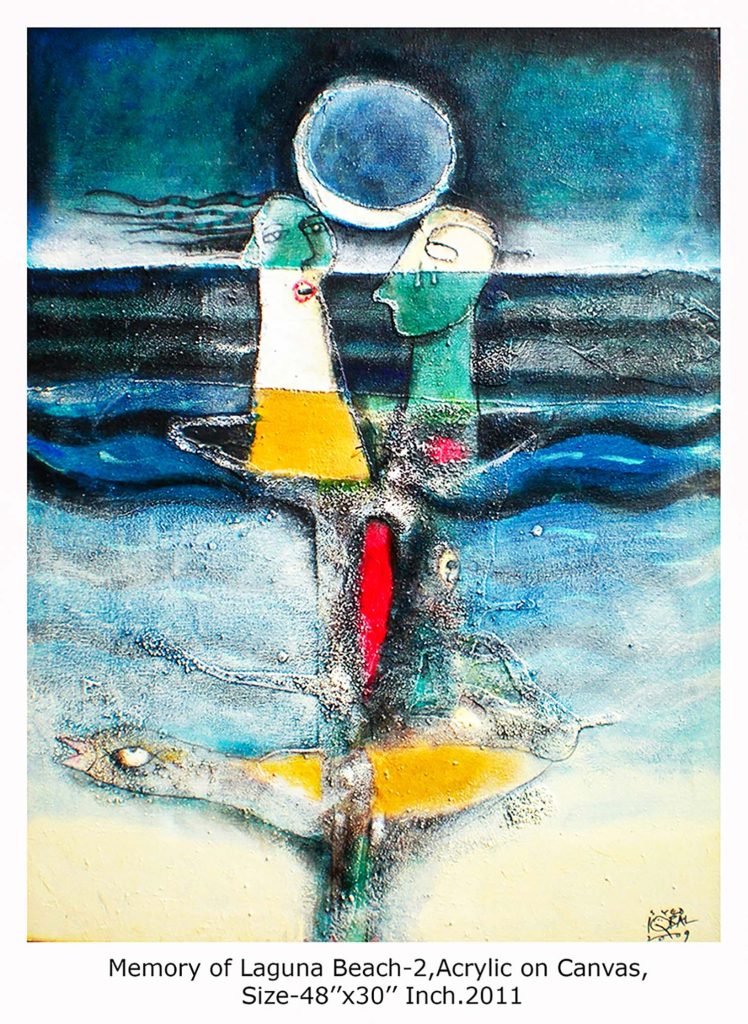
One common denomination of his works is the penchant for treading acrylic on canvas. This may be why his female forms are so alluring in their inducement, and nature blooms with so many blushes and brilliance in his brushes. “The reason why I later chose the acrylic painting over oil painting was that oil-based paint has a strong odour, which is quite invasive, for which my partner goes through suffocation during the process. So, it is safer for me to paint in acrylics and for my wife, who has been my source of courage, to hover in the field of art.”
The artist also enjoys experimenting with different materials, combining colour with sand, different modeling paste, textured glue and resin to create a multi-layered surface, as seen in many of his canvases.
Over the illustrious decades of his art-making career, Iqbal worked towards paving ways for the young artists living in Toronto so that their works are displayed in mainstream galleries. When asked what piece of advice he would like to give to the young artists who aspire to build an art career, he answered, “There is no such advice or words of wisdom or some philosophical traits I would like to give, but rather I opt to make ways to create platforms for the young artists so that they do not need to hang their artworks on the walls of tea-stalls or alleys anymore, and I am happy that I have been quite successful in doing so.”


